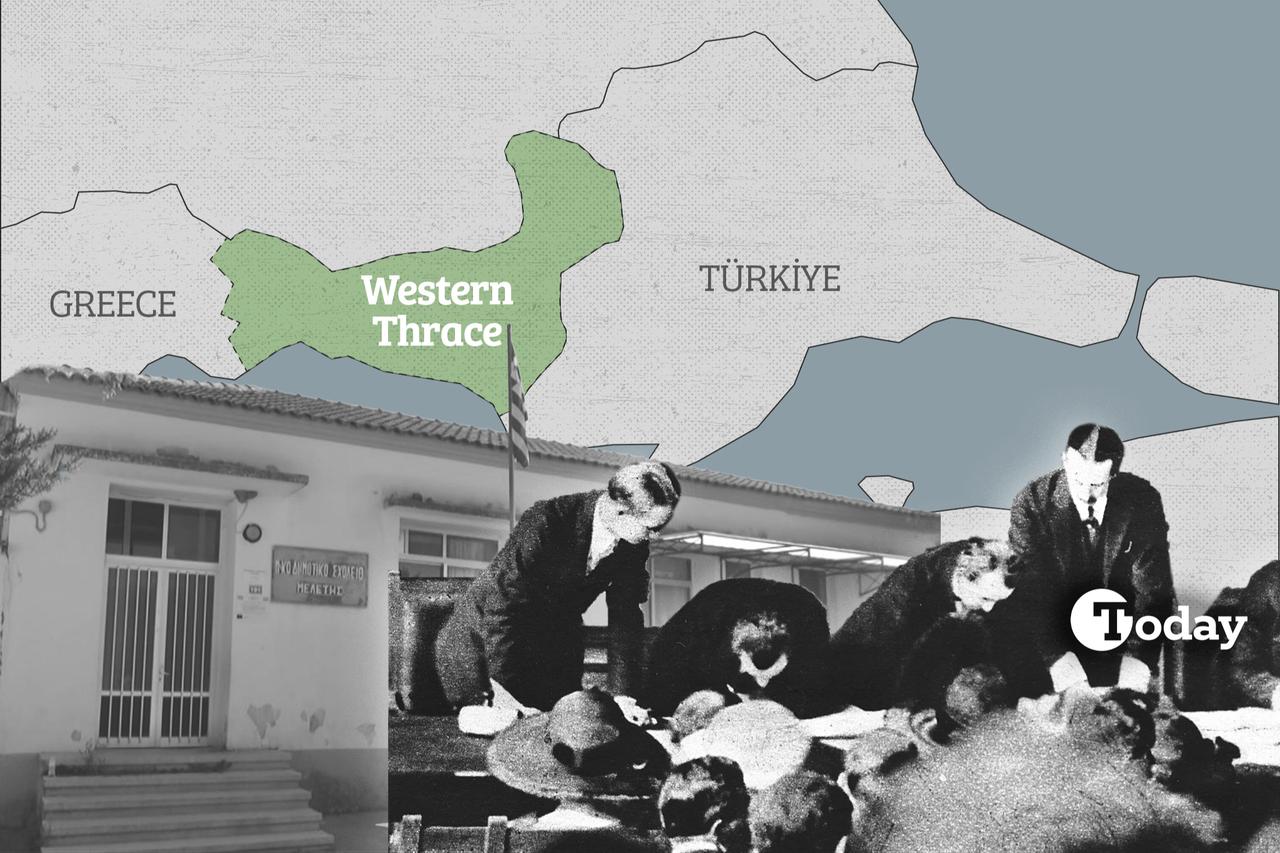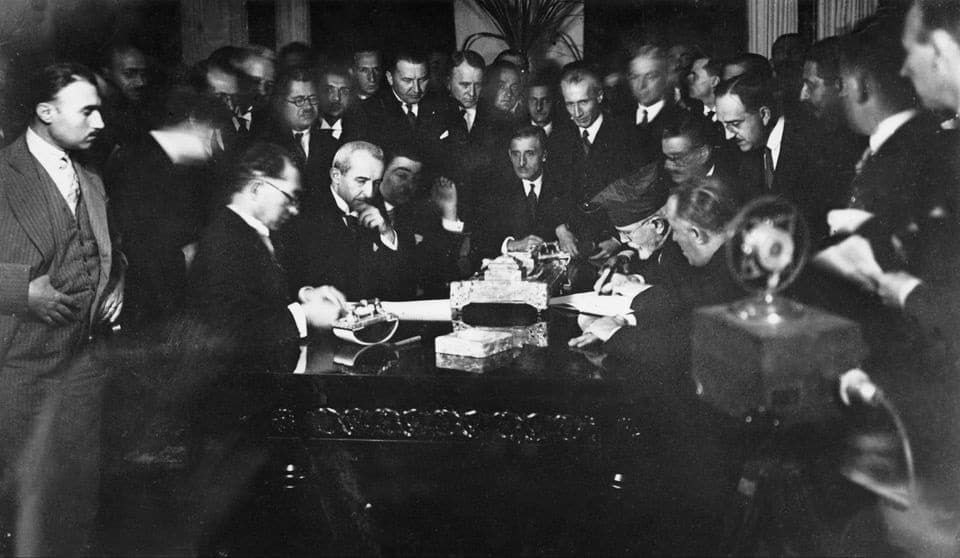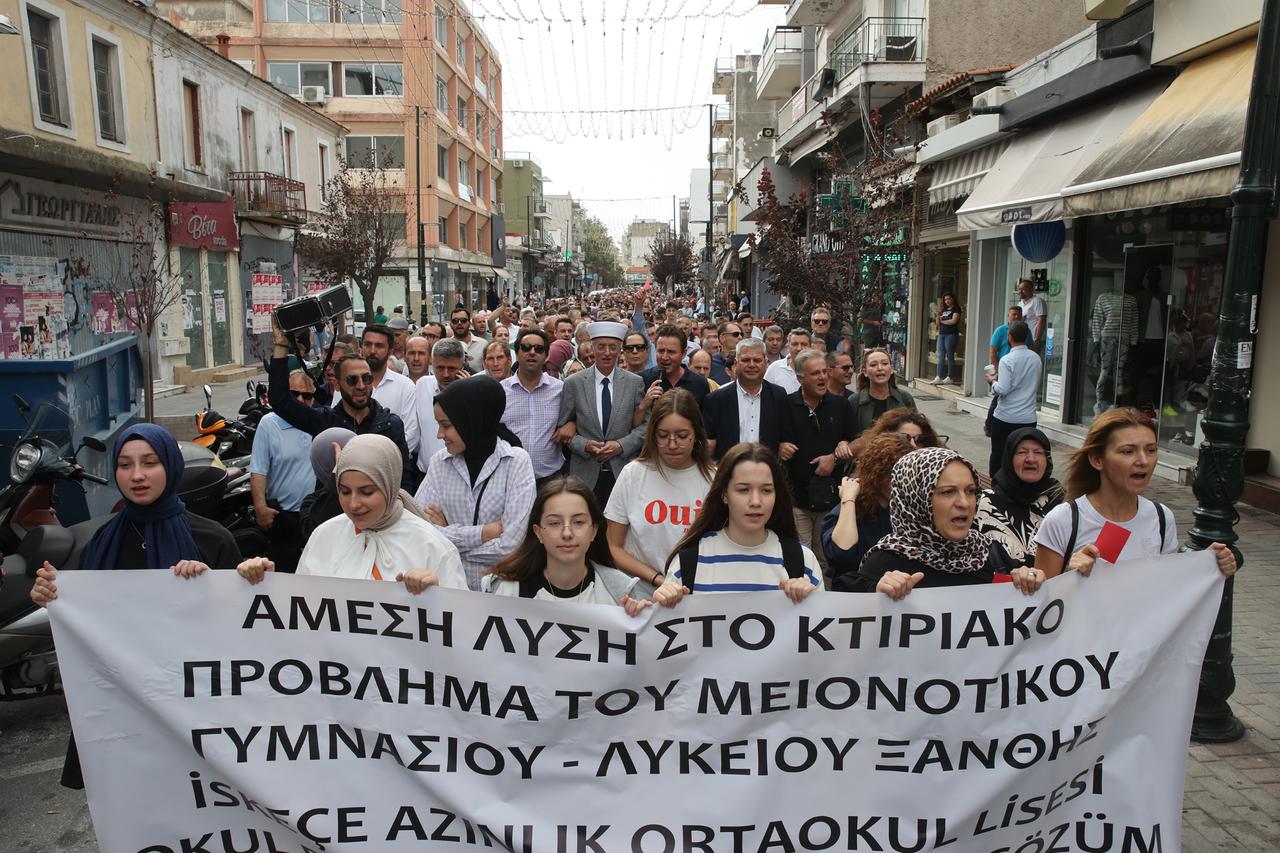
The Turkish minority living in Western Thrace faces the danger of losing one of their fundamental rights—the right to education in their mother tongue—due to Greece’s education policies.
In recent years, the systematic closure of minority schools indicates that this process is not accidental but a deliberate state policy.
The recent closures in the villages of Kardere, Mehrikos and Hasanlar demonstrate that this approach continues.
The Turkish Foreign Ministry clearly emphasized that the educational and religious autonomy rights of the Turkish minority in Western Thrace are guaranteed by the Lausanne Peace Treaty.
The ministry considers the school closures carried out by Greece under the pretext of “low student numbers” as violations of minority rights.
Friendship Equality Peace Party (DEB) General Chairman Cigdem Asafoglu considers it an attempt at cultural assimilation.
These practices, she said, have destructive effects not only on education but also on the sense of identity and belonging.

The rights of the Turkish minority in Western Thrace are defined under international law by the 1923 Treaty of Lausanne.
Articles 40 and 41 explicitly grant minorities the right to receive education in their own language and to establish their schools.
The Ministry of Foreign Affairs of Türkiye clearly stated that these rights are binding for the Turkish minority in Western Thrace and that Greece has not fulfilled these obligations.

Relevant provisions of Treaty of Lausanne
These provisions create a special status for the Turkish minority in Western Thrace.
Evaluations by ministry of Foreign Affairs
Field practices
In 2002, there were around 230 Turkish minority primary schools in Western Thrace, but by 2023, this number had dropped below 90.
While “low student numbers” are cited as the reason for closure, some villages with sufficient students still do not have operational schools.
DEB Party President Cigdem Asafoglu described this situation as an “assimilation project.”
| Year | Number of Schools |
|---|---|
| 2002 | ~230 |
| 2010 | ~150 |
| 2020 | ~110 |
| 2023 | <90 |
Turkish minority schools in Western Thrace have been closed in recent years by Greece under the pretext of “low student numbers.”
This practice affects not only individual villages but also the educational infrastructure across the region.
The number of Turkish minority primary schools, approximately 230 in 2002, has dropped to below 90 as of 2023.
Schools closed between 2023 and 2025
These closures have sparked reactions from local communities and minority representatives.
DEB Party President Cigdem Asafoglu called the closures an “assimilation project” and stated that some schools remain closed despite sufficient student numbers, pointing out that this is a political, not pedagogical, decision.
Greek authorities describe the closures as “temporary” and claim schools may reopen if student numbers increase.
However, similar situations in Musakoy and Haci Mustafa villages in the past have shown that schools remained closed despite adequate student numbers.
The ministry considers school closures to violate the educational autonomy provisions of the Treaty of Lausanne and regularly raises this issue on international platforms.
Violations of the right to education are considered a serious threat to the preservation of minority identity.
The Foreign Ministry regards the protection of the educational and cultural rights of the Turkish minority in Western Thrace as a fundamental element of Türkiye-Greece relations.
The ministry considers Greece’s school closures contrary to the clear provisions of the Treaty of Lausanne and raises the issue within the framework of international law.
Key emphasis by the ministry
Türkiye consistently brings up this issue in bilateral talks to protect the rights of the Turkish minority in Western Thrace.
It reminds Greece of its obligations under international human rights mechanisms and calls for monitoring. The ministry clearly stated that it closely follows developments in Western Thrace and stands with the minority.
Türkiye urges Greece to fully comply with the Treaty of Lausanne and end practices that violate minority rights.
Ankara emphasized that the right to education is essential for preserving cultural identity and that violations pose risks to regional peace and stability.
The closure of Turkish minority schools in Western Thrace is considered a serious violation not only in the context of bilateral relations but also under international law and human rights.
The Ministry of Foreign Affairs emphasized that Greece’s practices are contrary to many international obligations, including the European Convention on Human Rights (ECHR) and the Treaty of Lausanne.
Violated international norms
Some members of the European Parliament and the Council of Europe have drawn attention to violations of minority rights in Western Thrace.
The European Court of Human Rights (ECHR) has previously ruled against Greece in cases related to the Turkish minority in Western Thrace, particularly regarding freedom of association and property rights, highlighting inconsistencies with international law.
Türkiye regularly raises Greece’s minority policies at the OSCE, Council of Europe, and the U.N.
The ministry shares developments in Western Thrace with international human rights mechanisms and calls for monitoring.
School closures effectively eliminate children’s right to education in their mother tongue, hindering the intergenerational transmission of cultural identity.
Violations of the right to education cause not only individual hardship but also societal identity erosion.

The closure of Turkish minority schools in Western Thrace is not only a local educational issue; it has serious implications for international law, human rights, and regional stability.
Despite clear provisions in the Treaty of Lausanne, Greece’s systematic reduction of minority education threatens the intergenerational transmission of cultural identity.
The Ministry of Foreign Affairs of Türkiye considers these practices contrary to Lausanne and undertakes diplomatic initiatives on international platforms to protect minority rights.
Educational autonomy is not merely a pedagogical right; it is a means for a community to sustain its existence.
Institutions such as the EU, the Council of Europe, and the United Nations should closely monitor Greece’s minority policies and remind Greece of its obligations.
Previous ECHR decisions provide precedent and guidance for recent cases.
Full compliance with the Treaty of Lausanne should be ensured, and the autonomous structure of minority schools should be reinstated.
Closures justified by “low student numbers” are more political than pedagogical and should be reconsidered.
The voice of the Turkish minority in Western Thrace must be heard not only through diplomatic channels but also via media, academia and civil society.
The right to education is the right to identity. Defending this right is equivalent to defending universal values.